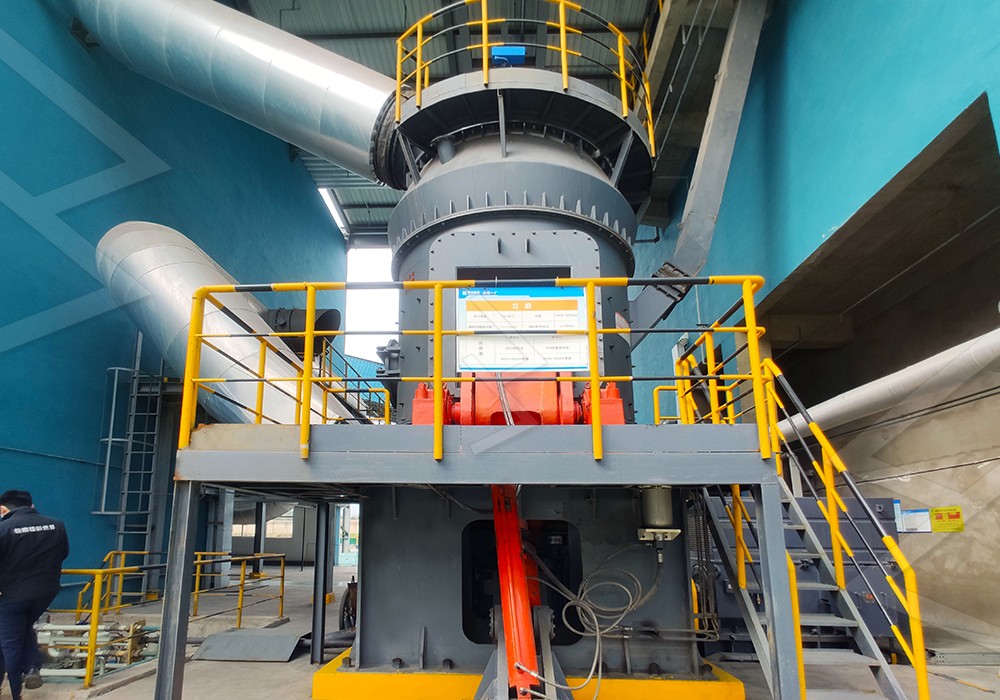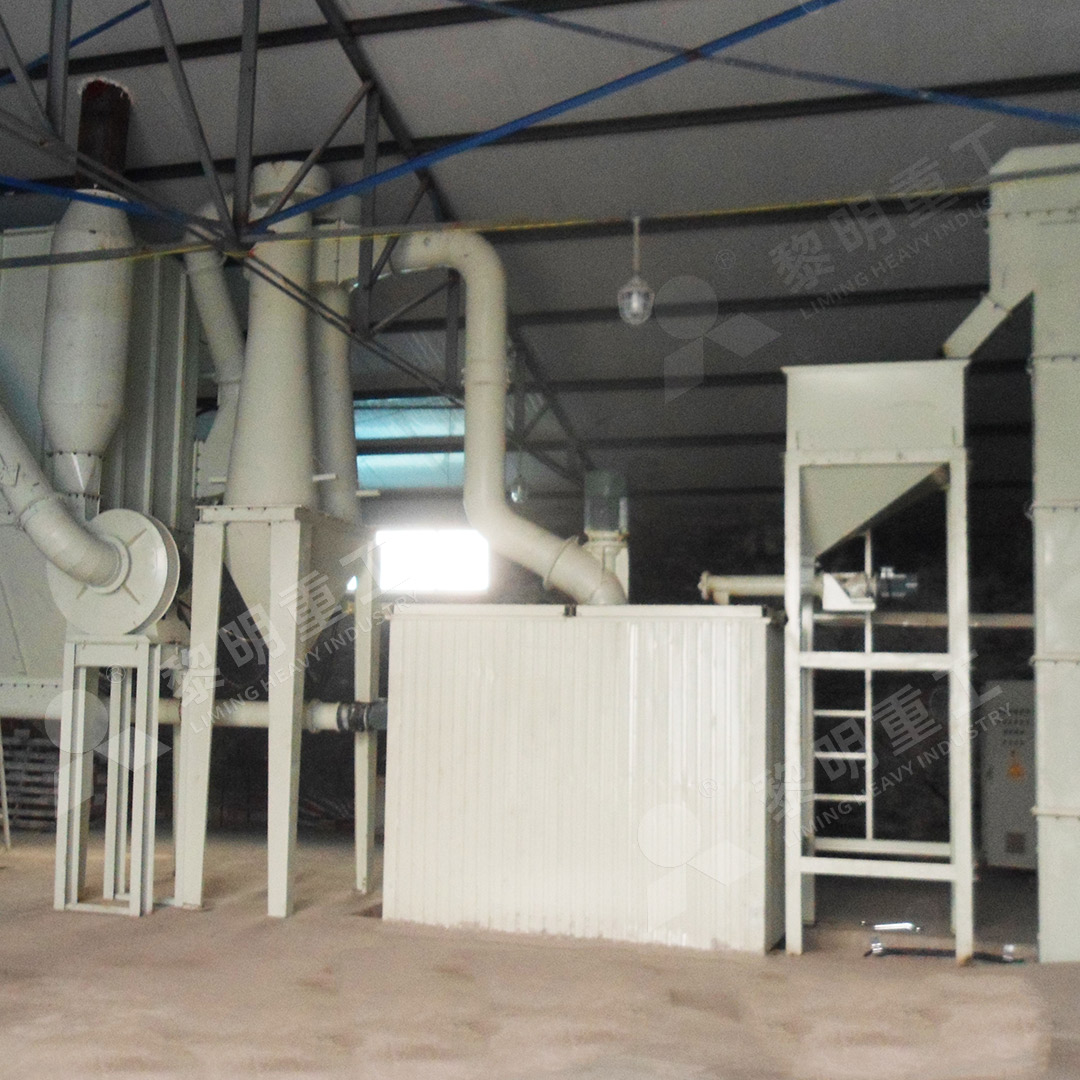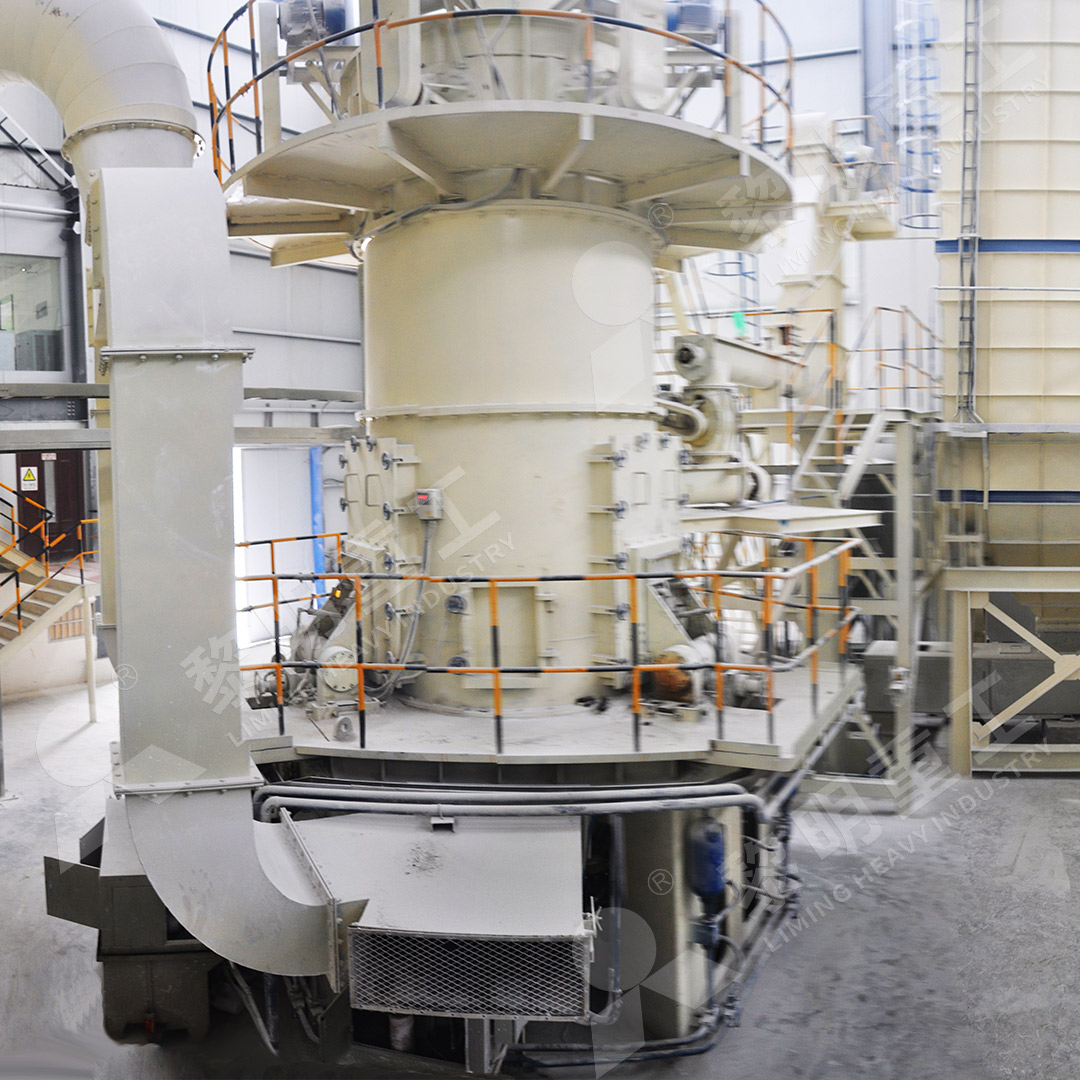Barium Sulfate Vertical Roller Mill: Efficient Grinding Solutions
We provide a wide range of mills — including Raymond mill, trapezoidal mill, vertical mill, ultrafine mill, and ball mill, obtained ISO9001 international quality certification, EU CE certification, and Customs Union CU-TR certification. Suitable for processing minerals such as limestone, phosphate, quicklime, kaolin, talc, barite, bentonite, calcium carbonate, dolomite, coal, gypsum, clay, carbon black, slag, cement raw materials, cement clinker, and more.
The discharge range of these mills can be adjusted to meet specific processing needs, typically from 80-400 mesh, 600-3250 mesh, and can achieve the finest particle size of up to 6000 mesh(D50).
If you are looking for a reliable grinding solution to turn stone or minerals into fine powder, please feel free to contact our online customer service.
Barium Sulfate Vertical Roller Mill: Efficient Grinding Solutions
In the world of industrial mineral processing, achieving optimal particle size distribution and production efficiency for materials like barium sulfate presents significant challenges. Traditional grinding methods often fall short in meeting the stringent requirements for fineness, throughput, and energy consumption that modern operations demand. This is where advanced vertical roller mill technology demonstrates its superior capabilities.

The Technical Challenge of Barium Sulfate Grinding
Barium sulfate, commonly known as barite in its natural form, requires precise grinding to achieve the desired properties for various industrial applications. The material’s specific gravity of 4.5 and moderate hardness create unique processing characteristics that demand specialized equipment. Conventional ball mills and Raymond mills often struggle with inconsistent particle size distribution, high energy consumption, and excessive wear part replacement costs when processing barium sulfate.
Modern vertical roller mills address these challenges through innovative engineering solutions. The vertical configuration allows for simultaneous drying, grinding, and classification within a single compact unit, significantly reducing the footprint and energy requirements compared to traditional systems. The grinding mechanism employs multiple rollers pressing against a rotating table, creating a highly efficient comminution process that minimizes overgrinding and maximizes production output.
Advanced Technology for Superior Performance
When selecting equipment for barium sulfate processing, several key factors must be considered. The ability to precisely control particle size distribution between 325 to 2500 meshes is crucial for meeting product specifications in industries such as paints, coatings, plastics, and pharmaceuticals. Additionally, maintaining low iron contamination levels is essential for applications where product purity directly impacts performance characteristics.

For operations requiring ultra-fine barium sulfate powders, the MW Ultrafine Grinding Mill represents an ideal solution. This advanced mill system combines German powder separation technology with innovative grinding chamber design to deliver exceptional performance. With an input size capability of 0-20 mm and production capacity ranging from 0.5 to 25 tph, the MW series accommodates various production scales while maintaining consistent product quality.
The mill’s cage-type powder selector technology enables precise control over final product fineness, allowing operators to adjust specifications between 325-2500 meshes as market demands shift. What truly sets this system apart is its unique grinding chamber design that eliminates rolling bearings and screws within the grinding zone, virtually eliminating concerns about bearing failures or loose hardware causing operational disruptions.
Operational Efficiency and Environmental Compliance
Beyond technical performance, modern barium sulfate grinding operations must address environmental considerations and operational costs. The integrated pulse dust collection system in advanced vertical roller mills ensures dust-free operation throughout the grinding process, while specialized silencers and noise reduction chambers maintain workplace noise levels within regulatory limits.
The energy efficiency of vertical roller technology represents another significant advantage. Compared to traditional jet mills, the MW Ultrafine Grinding Mill reduces system energy consumption by approximately 30% while increasing production capacity by up to 40% under identical fineness and power conditions. This combination of higher throughput and lower operational costs delivers a compelling return on investment for processing facilities.

For operations requiring different capacity ranges or dealing with varying raw material characteristics, the LUM Ultrafine Vertical Grinding Mill offers complementary capabilities. With input size handling up to 10 mm and capacity ranging from 5-18 tph, this mill incorporates the latest Taiwanese grinding roller technology and German powder separation systems. The LUM series features double position-limiting technology that ensures operational stability even under variable feed conditions, while its reversible structure simplifies maintenance procedures and reduces downtime.
Application-Specific Considerations
The selection of appropriate grinding technology for barium sulfate depends heavily on the intended application of the final product. For drilling mud applications, where specific gravity and particle size distribution are critical, vertical roller mills provide consistent control over these parameters. In contrast, chemical and pharmaceutical applications demand extreme purity and precise particle morphology, requirements that are met through the advanced separation and classification systems in modern vertical mills.
Material handling represents another important consideration. Barium sulfate’s high specific gravity necessitates robust conveying systems and proper hopper design to ensure consistent feed to the grinding mill. Modern vertical roller mills address these challenges through integrated material handling solutions that maintain optimal feed rates and prevent bridging or segregation issues.
Frequently Asked Questions
What is the typical energy consumption for grinding barium sulfate to 1250 mesh?
Advanced vertical roller mills typically consume 30-50% less energy compared to traditional ball mills or jet mills when producing barium sulfate at 1250 mesh. The exact consumption depends on material characteristics and system configuration, but modern systems achieve significant efficiency improvements through optimized grinding mechanics and advanced classification technology.
How does the vertical roller mill prevent iron contamination in barium sulfate products?
The grinding mechanism in vertical roller mills minimizes metal-to-metal contact through careful design of grinding elements and the use of wear-resistant materials. Additionally, the absence of grinding media such as steel balls significantly reduces iron introduction. For the MW Ultrafine Grinding Mill, the elimination of rolling bearings and screws in the grinding chamber further minimizes potential contamination sources.
What maintenance requirements should be expected with vertical roller mills for barium sulfate?
Modern vertical roller mills are designed for minimal maintenance requirements. The MW series, for instance, features external lubrication systems that allow maintenance without shutdowns. Typical maintenance intervals for grinding elements range from 6,000 to 8,000 operating hours, depending on material abrasiveness and operational conditions. The reversible design of components in mills like the LUM series further simplifies replacement procedures.
Can the same mill handle different mineral materials besides barium sulfate?
Yes, advanced vertical roller mills are highly versatile and can process various non-metallic minerals including limestone, calcite, dolomite, talc, and gypsum. The adjustable operating parameters and classification systems allow quick transitions between different materials with minimal downtime, making these mills ideal for operations processing multiple mineral products.
